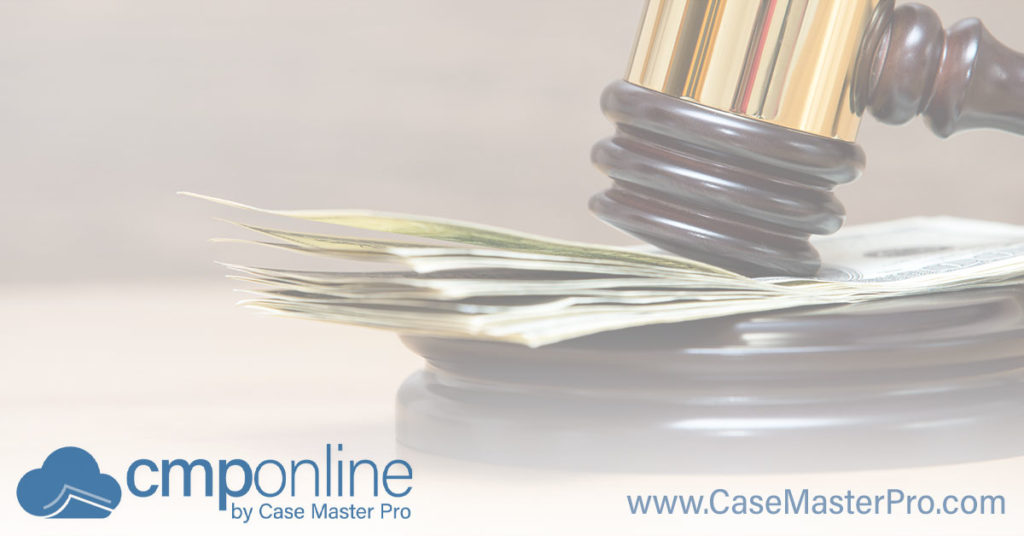
Types of Debt Recovery are crucial for legal professionals to comprehend in order to effectively manage and recover owed funds. This understanding can significantly impact a law firm’s financial health and client relationships.
Different types of debt require unique strategies for recovery, each with its own set of challenges and legal considerations. Whether it’s consumer collections or commercial debt, subrogation or real estate-related debts, the approach varies greatly.
In addition to these categories, accounts receivable collections process plays an essential role in business debt recovery. It involves several steps from initial invoicing through potential legal action if necessary.
The landscape also includes specific areas such as credit card debts and medical debts that have their own distinct complexities within the broader Types of Debt Recovery. The following sections will delve into these different types providing clarity on how best to navigate them successfully.
Consumer and Commercial Debt
In the realm of debt recovery, two primary categories are consumer and commercial collections. Consumer debts stem from personal transactions like credit card bills or medical expenses while commercial collections relate to business-to-business (B2B) dealings such as unpaid invoices or trade credits.
Differences Between Consumer and Commercial Collections
The differences between these two types of debt collection should be well-understood by every attorney. Firstly, each type is governed by different laws – for instance, the Fair Debt Collection Practices Act (FDCPA), which regulates how consumer debts can be collected but doesn’t apply to commercial debts.
Beyond legal distinctions, strategies used in collecting outstanding debts also vary depending on whether it’s a consumer or a commercial case. For example, reputable collectors operate with phone calls or letters when reaching out about an individual’s unpaid debt whereas more aggressive tactics might be needed when dealing with businesses due to larger sums involved.
Legal Considerations for Attorneys
A significant part of an attorney’s role involves understanding relevant legislation pertaining to fair practices in both types of cases – including actions that could potentially violate FDCPA while handling consumers’ cases.
This knowledge enables them to guide clients towards making smarter financial decisions throughout life’s financial journey.
On the other hand, attorneys working within the B2B sphere face challenges around determining who has authority over company assets if there’s a delinquent account among partners within the same firm, which is why they need a comprehensive understanding of corporate structure along with standard contract terms applicable at the state level too.
Tackling Unpaid Debts: Strategies for Lawyers
An effective strategy employed by many lawyers specializing in debt recovery is negotiation – either directly with the original debtor or through third-party agencies operating on behalf of the liable party.
One common tactic involves offering temporary interest-only payments until the debtor’s situation improves, thereby preventing escalation into court proceedings, which can prove costly and time-consuming for all parties involved.
Such an approach requires careful analysis of the debtor’s self-selected credit score range alongside their overall ability to repay based upon income expenditure patterns, hence why maintaining confidentiality around sensitive personal banking information is paramount throughout the process.
Bottom line: Collecting effectively demands a balance between assertiveness and empathy, ensuring the best outcome for everyone concerned while upholding the highest professional and ethical standards possible.
Key Takeaway: Understanding the nuances between consumer and commercial debt recovery is crucial for attorneys. They must navigate differing laws, collection strategies, and legal considerations based on case type. Successful lawyers employ negotiation tactics while maintaining a balance of assertiveness and empathy to achieve the best outcomes.
Subrogation
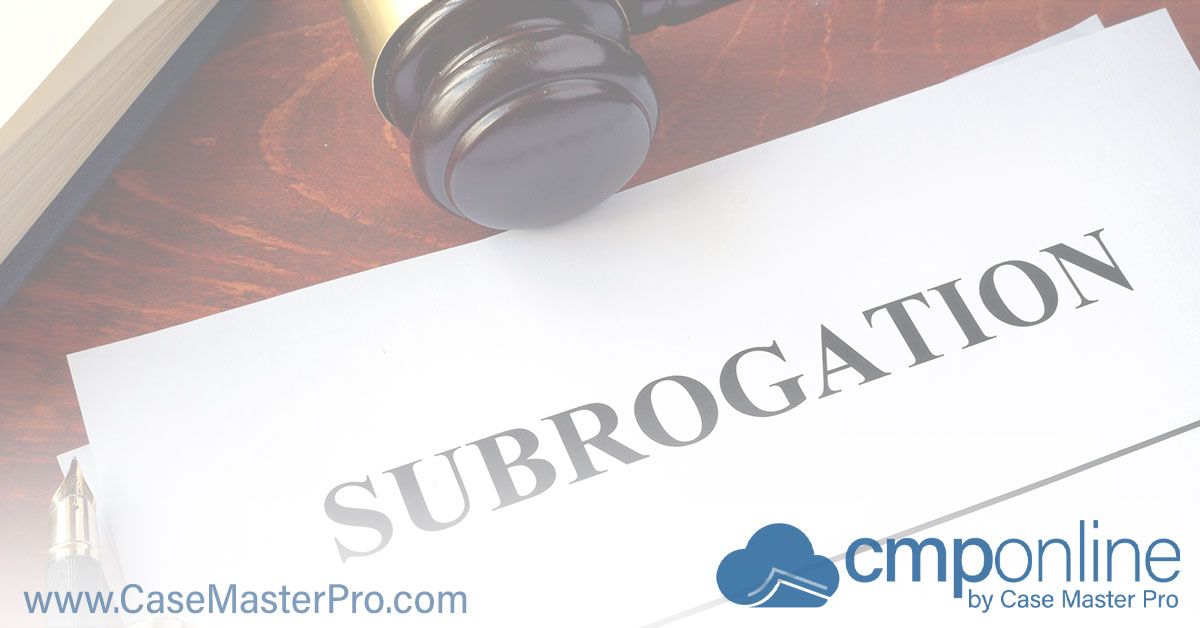
The legal landscape of debt recovery is dotted with complex concepts, one of which is subrogation. Subrogation permits a party to make payment on behalf of another and then seek reimbursement from the original debtor. This process plays an integral role in outstanding debt collection for attorneys.
Dynamics of Subrogation in Debt Recovery
In most instances, subrogation comes into play when insurance companies compensate their insured clients for claims made against them. The insurer then assumes the position of its client and pursues repayment from the responsible third-party or their respective insurers. For lawyers handling unpaid debts, this provides additional avenues to recover funds owed.
A classic example would be if someone sustains injuries due to another person’s negligence resulting in medical bills paid by his/her health insurance provider. In such scenarios, through exercising subrogated rights, health insurers can recoup these costs directly from at-fault parties or their respective insurances.
Downtime Claims and Damages Entitlements
An important facet that falls under subrogated claims involves downtime losses – periods where businesses cannot operate normally due to damages caused by others’ actions or neglectfulness. Let’s say a business property suffers fire damage because faulty wiring installed by an electrician contractor led to significant downtime during repairs.
In such situations not only can businesses pursue compensation for physical damages but also claim lost profits during this period via “downtime claims”. Understanding how these types work offers valuable leverage points for attorneys aiming at maximizing recovery efforts on behalf of clients. Lawyer Weekly has more insights about understanding downtime claims here.
Let’s say a trucker suffers extensive damage because of another driver’s negligence on the road which then led to significant downtime during repairs.
In such situations, not only can the owner of the truck pursue compensation for physical damages, but also claim lost profits during this period via “downtime claims”. Understanding how these work offers valuable leverage points for attorneys aiming at maximizing recovery efforts on behalf of their clients. Attorney Kelsea Eckert with Eckert & Associates, P.A. has more insights about understanding downtime claims here.
Navigating Legal Rights within Subrogated Claims
Clients who suffer injuries often don’t realize they may hold entitlements beyond immediate medical expenses under certain circumstances, which is why skilled representation becomes crucially important. Lawyers must understand intricacies around potential future care needs related to injury impacts too – aspects like rehabilitation costs potentially being factored into settlements achieved via subrogated proceedings.
By harnessing comprehensive knowledge around all possible entitlements inherent within specific case contexts, lawyers enhance chances of ensuring fair outcomes while simultaneously bolstering overall recovery results.
Key Takeaway: Subrogation, a crucial tool in debt recovery for lawyers, allows insurers to recoup costs from at-fault parties after compensating their clients. This process extends to downtime claims and damages entitlements, providing additional leverage points for attorneys seeking maximum recovery on behalf of their clients.
Real Estate Collections and Evictions
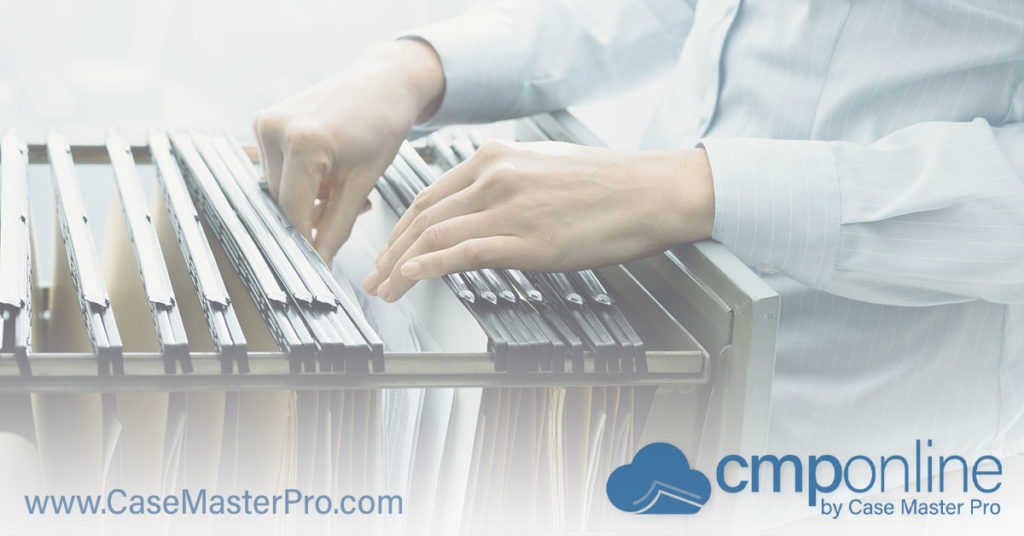
The landscape of real estate collections is complex, presenting unique challenges to debt collection attorneys. It involves a blend of understanding legal processes, dealing with late rent payments or outstanding balances on property-related debts, as well as navigating eviction procedures.
Legal Aspects in Real Estate Debt Collection
In the realm of real estate debt recovery, landlords are bound by strict regulations when collecting overdue rents from tenants. This process often includes issuing formal notices before any serious action can be taken. Non-compliance could lead to penalties for the landlord or even dismissal of their case against the delinquent account holder.
If initial attempts at recovering unpaid debts prove unsuccessful, it may become necessary for landlords to initiate an eviction lawsuit against defaulting tenants – a task that requires proof that all required steps have been followed up until this point and clear evidence showing a breach of the lease agreement. The American Apartment Owners Association offers some useful insights into these matters.
Navigating Through Evictions
An eviction isn’t merely about removing non-paying tenants; it’s also centered around recouping outstanding debt owed by them. Lawyers acting on behalf of landlords need comprehensive knowledge regarding both aspects while handling such cases effectively.
A successful eviction doesn’t necessarily ensure full recovery of unpaid rents or compensation for damages caused during the occupancy period – additional court proceedings post-eviction might be needed here, which would require separate judgments, hence adding more time-consuming tasks onto your plate.
Tackling Challenges in Real Estate Collections Process
Faced with complexities inherent within the real estate collections process necessitates not only thorough familiarity with local laws but also sensitivity towards human psychology since you’re directly engaging individuals who might be experiencing financial hardships, making prompt payment difficult if not impossible sometimes.
Creative solutions like devising repayment plans could potentially help resolve issues amicably without immediate resort toward evictions – yet each situation demands careful assessment based upon its own merits rather than adopting a one-size-fits-all approach across the board.
Key Takeaway: Real estate debt recovery is a complex blend of legal procedures, eviction processes, and sensitive human interactions. Successful collections demand understanding regulations, following due process in evictions, proving lease breaches effectively while also empathizing with tenants’ financial hardships. Creative solutions like repayment plans could offer amicable resolutions.
Navigating Medical Debt Collection Regulations
To effectively navigate these waters, lawyers must have a deep understanding of Fair Debt Collection Practices Act (FDCPA). This act ensures that consumers’ rights are protected while allowing fair practices in recovering outstanding debts from patients who may not be able to make smart personal finance decisions during life’s financial journey.
In addition, strict adherence to the guidelines set forth by the Consumer Financial Protection Bureau is crucial when dealing with sensitive personal banking information related to healthcare costs. By doing so, law firms can maintain their reputation while efficiently handling delinquent accounts without infringing upon patient privacy laws or resorting to harassment tactics often associated with phone bills and debt collectors.
Tackling Unique Challenges in Medical Collections
Apart from regulatory compliance issues surrounding collections on behalf of original creditors like hospitals or clinics, there’s also potential difficulty involved if credit card issuers continue offering temporary interest-only payments or even increasing credit lines – thereby further complicating matters concerning repayment schedules and overall balances owed. Therefore, it becomes imperative for legal professionals well versed within this field to stay updated about the latest developments affecting consumer protection rules along with making smarter financial decisions tailored towards each debtor’s self-selected credit score range among other factors.
Efficient Management of Accounts Receivable
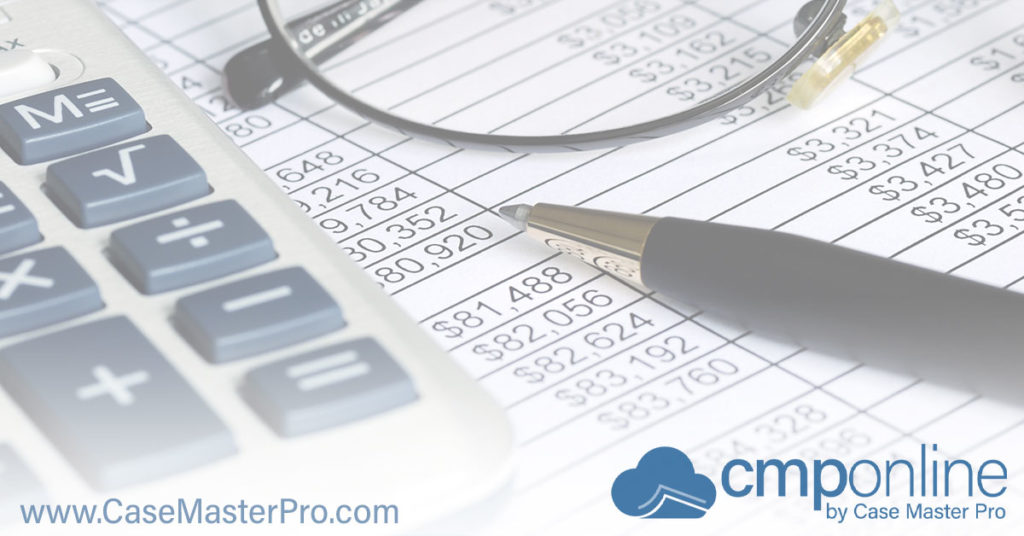
The process of managing accounts receivable (AR) is a critical component in the realm of debt recovery for attorneys. This involves monitoring and handling outstanding invoices or unpaid debts from clients, ensuring cash flow remains positive.
Decoding Accounts Receivable
In business language, accounts receivables refer to monies owed by customers, accrued through credit-based transactions for services rendered or goods supplied. These claims are legally enforceable and can be collected if payments aren’t made within stipulated timelines.
A robust AR system aids in mitigating overdue payments while maintaining healthy cash flows – an essential element for law firms looking at efficient strategies to manage their AR processes effectively.
Navigating Through Collection Process Steps
The collection process commences with issuing an invoice that details the amount due including any interest charges applicable. It should clearly outline payment terms along with due dates as per your firm’s policies.
If there’s no receipt of payment post-due date, reminders need to be dispatched promptly. These could range from phone calls to emails reminding them about their obligations. Bear in mind these communications must adhere strictly to regulations such as the Fair Debt Collection Practices Act (FDCPA).
Taking Legal Action When Necessary
Sometimes despite all attempts at collecting fails, legal action becomes inevitable as a last resort considering its cost implications both financially and time-wise. However, before embarking on this route, it’s crucial to evaluate whether potential recoveries justify these costs.
This typically entails filing a lawsuit against the debtor which may result in court orders compelling them towards repayment.
Elevate Your Collections Game With These Tips
To make smarter financial decisions about your firm’s collections processes, consider adopting some best practices:
- Maintain meticulous records: Documentation will prove invaluable later on, especially if you decide that escalating matters legally becomes necessary.
- Promptly chase up overdue invoices: The sooner you begin following up after an invoice falls overdue, the higher chances you stand at successful collection.
- Offer flexible repayment options: Offering temporary interest-only payments could facilitate faster settlement because it eases immediate fiscal pressure off the debtor.
- Hire professionals where needed: Engaging reputable collectors operate efficiently thanks largely due to their specialized knowledge around fair debt collection practices act (FDCPA) guidelines coupled with experience dealing with various types of defaulters.
Treading Legal Waters Carefully
Litigation sometimes becomes inevitable during attempts at recovering unpaid medical collection debts among others. Lawyers must navigate specific laws like FDCPA regulations while also ensuring respect towards client relationships remains intact.
Key Takeaway: Mastering the accounts receivable collections process is crucial in debt recovery. This involves issuing invoices, sending reminders, and escalating to formal demands or legal action if necessary. Best practices include maintaining meticulous records, promptly chasing overdue invoices, offering flexible repayment options, and hiring professionals when needed.
Credit Card Debts
Addressing credit card debts is a complex task for attorneys, given the multifaceted nature of this type of debt. It often involves multiple creditors and necessitates careful negotiation.
Navigating Multiple Creditors
The presence of several creditors can make collecting credit card debts challenging. Each creditor may have distinct terms and conditions that lawyers need to understand before initiating collection efforts.
In many instances, an individual’s outstanding balance could be spread across various cards issued by different banks or financial institutions. These entities might sell their delinquent accounts to debt collectors, adding another layer of complexity as each collector operates differently.
Negotiating Settlements
A significant part in recovering credit card debt includes negotiating settlements with either the original creditor or assigned collection agencies.
It’s crucial that attorneys are well-informed about fair debt collection practices act (FDCPA) guidelines during these negotiations. Strategies such as offering temporary interest-only payments or proposing reduced lump-sum amounts could help clear larger portions of unpaid debt quickly.
However, successful negotiations require effective communication skills along with a comprehensive understanding of how reputable collectors operate.
Legal Frameworks Associated with Collecting Credit Card Debts
The legal environment surrounding credit card debts is intricate and ever-changing. Therefore it is vital for attorneys working in this field to stay updated on relevant laws enforced by the Consumer Financial Protection Bureau (CFPB).
In addition to FDCPA rules mentioned earlier, there are other considerations too – from statutes limiting when lawsuits against debtors can be filed, up to privacy rights protecting personal banking information during collection processes. For instance, if you’re dealing with phone bills, then TCPA compliance becomes critical since improper contact methods could lead to lawsuits against your firm instead.
Making Smarter Financial Decisions For Clients
Ultimately, while collecting any credit card related debts, helping clients make smart decisions will always be a top priority.
Whether advising them about managing existing lines of credit wisely so their future financial journey remains smooth or guiding them through hardships where they might need assistance from reputable collectors who operate ethically, attorneys play pivotal roles.
Dive into the complexities of debt recovery. From navigating multiple creditors to negotiating settlements, it's a delicate balance that requires knowledge and finesse. Don't forget about FDCPA compliance – crucial for fair… Share on XMedical Debts
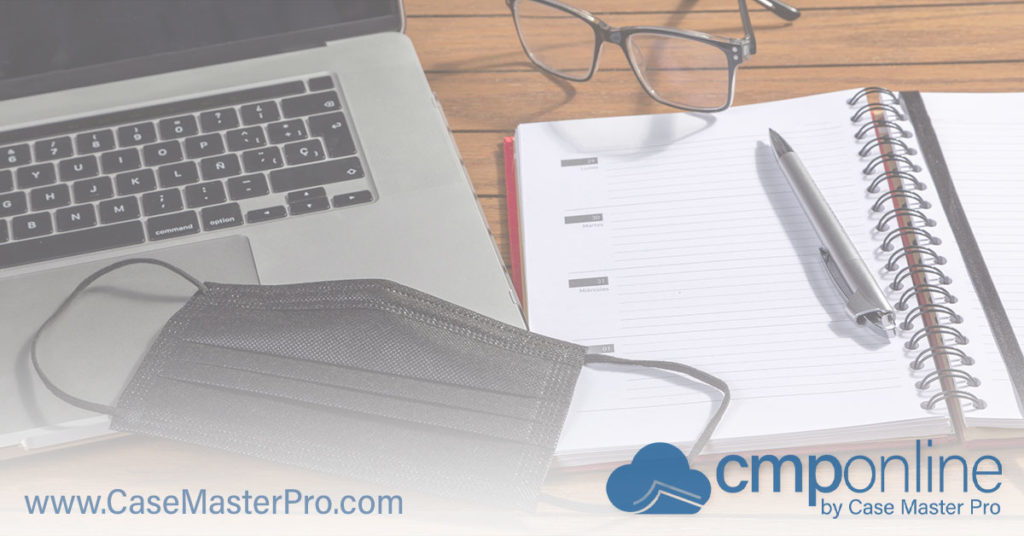
The realm of medical debt collection is riddled with unique aspects and challenges that attorneys must maneuver. The significance of laws like HIPAA on the recuperation of medical debt cannot be underestimated.
HIPAA: A Critical Consideration in Medical Debt Collection
In the pursuit to recover unpaid medical collection debts, HIPAA stands as a sentinel in protecting patient privacy. This federal legislation sets strict boundaries around who can access an individual’s health information, including outstanding medical bills. For lawyers representing healthcare providers or reputable debt collection agencies seeking to reclaim these dues, compliance with HIPAA guidelines is non-negotiable.
This underscores the importance for attorneys handling cases involving delinquent accounts due to unpaid medical debts not disclosing any protected health information without explicit consent from the debtor. Failure to comply could result in severe penalties under HIPAA rules.
Navigating Complexities: Legal Strategies & Key Considerations
Beyond regulatory compliance issues like HIPAA lie other complexities elemental to collecting medical debts, mainly insurance companies and Medicare/Medicaid claims that often lead towards delayed payments causing delinquent accounts.
A strategy many successful lawyers employ involves negotiating payment plans tailored specifically for patients grappling with financial hardships brought about by their illness or injury. Offering temporary interest-only payments may serve as one viable option to help individuals manage their obligations while avoiding more aggressive tactics like lawsuits or wage garnishments typically reserved when all else fails.
Tips for Effective Medical Debt Recovery
To effectively traverse through these intricacies and ensure fair practices that align with Fair Debt Collection Practices Act (FDCPA) guidelines, here are some tips:
- Maintain open lines of communication between your client -the original creditor- and the debtor, including clear explanations regarding billing procedures that might help prevent misunderstandings leading towards non-payment situations.
- Prioritize accuracy and ensure correct billing codes are used before initiating collection efforts. Mistakes happen frequently within the healthcare industry accounting departments and can lead to disputes over charges.
- If necessary, involve third-party mediators. If negotiations fail, consider using neutral parties skilled at resolving conflicts around disputed amounts owed, particularly if they relate to questionable insurance coverage decisions.
These steps will assist you in handling cases involving medical debt, ensuring efficient recovery while respecting both debtor rights and client interests.
Navigating the maze of medical debt recovery? Remember, it's not just about numbers. Tactful handling, HIPAA compliance and professional interactions are key. #DebtRecovery #HIPAACompliance Share on XFAQs in Relation to Types of Debt Recovery
What are debt recovery types?
Debt recovery types include consumer and commercial collections, subrogation, real estate collections and evictions, accounts receivable process, credit card debts, and medical debts.
What is the recovery of debt?
The recovery of debt involves retrieving owed money from individuals or businesses that have failed to fulfill their payment obligations.
What is the difference between debt collection and recovery?
While both involve recovering unpaid funds, debt collection typically refers to initial attempts by creditors while debt recovery often involves legal action or third-party agencies.
What are the steps for debt recovery?
The steps for debt recovery usually include sending invoices or reminders, making phone calls, negotiating payment plans if necessary, and taking legal action as a last resort.
Conclusion
Mastering the art of debt recovery is no small feat. It requires a deep understanding of various types, from consumer and commercial collections to subrogation.
Real estate collections bring their own unique challenges, while accounts receivable demand strategic planning and execution.
Credit card debts require careful negotiation with multiple creditors, and medical debts present legal complexities that can be daunting for even seasoned attorneys.
In short, successful debt recovery is an intricate dance between law and finance – one where every step counts.Ready to take your practice to the next level of Debt Recovery? Case Master Pro offers SaaS-based Debt Collection Software tailored specifically for lawyers like you. With our tools at your disposal, navigating through different Types of Debt Recovery becomes easier than ever before. Visit Case Master Pro and request a FREE DEMO today to start transforming how you handle debt collection cases!
